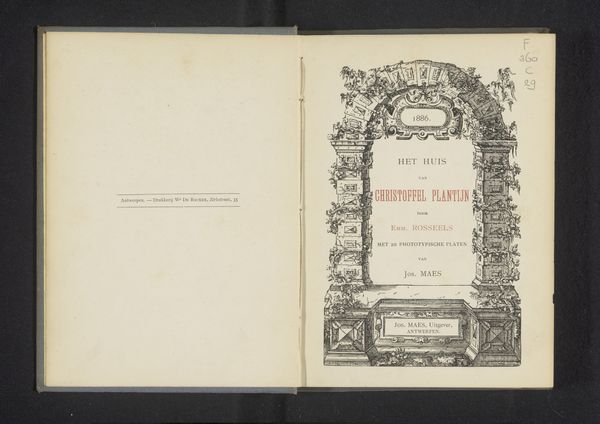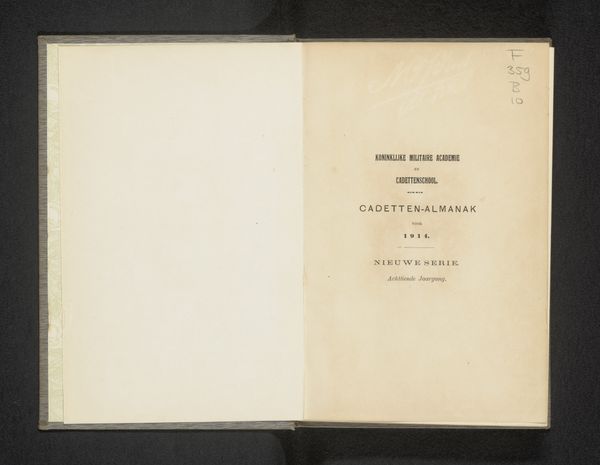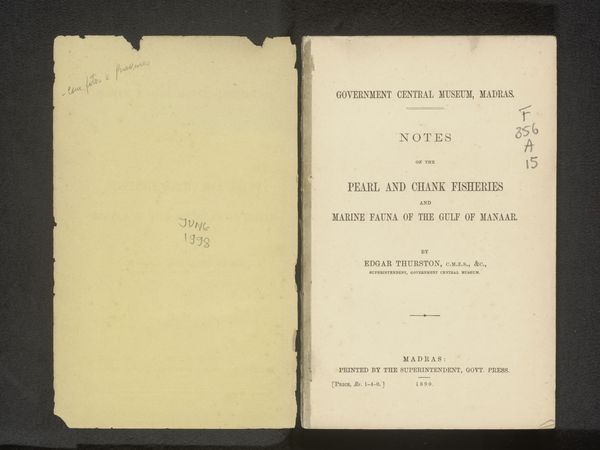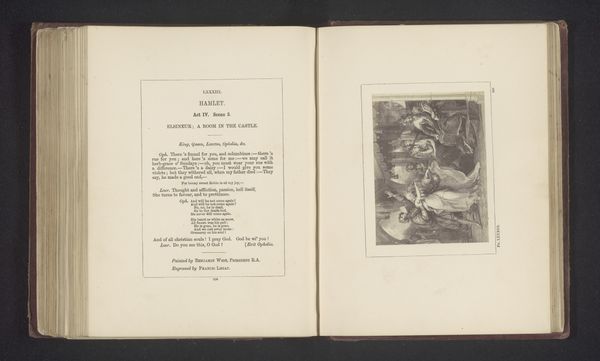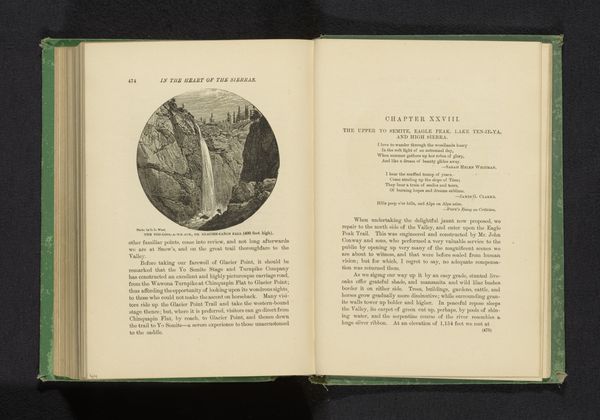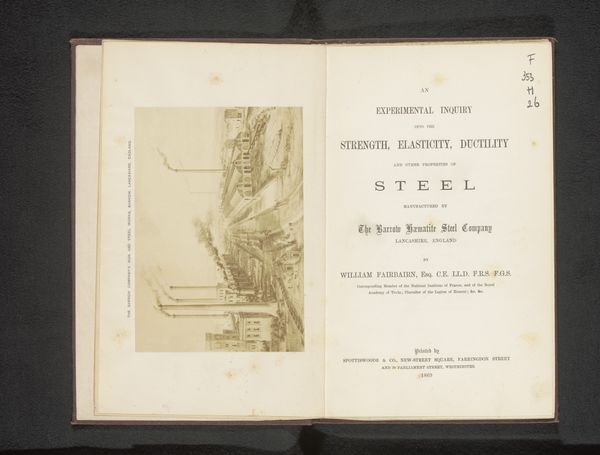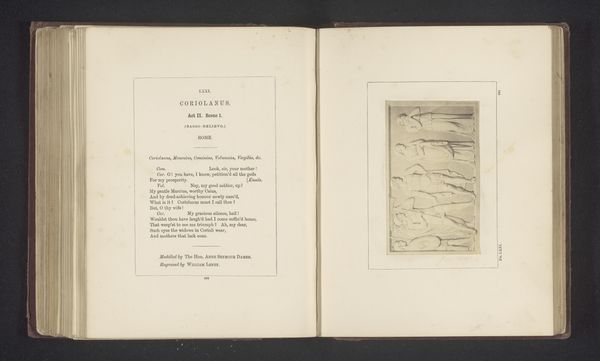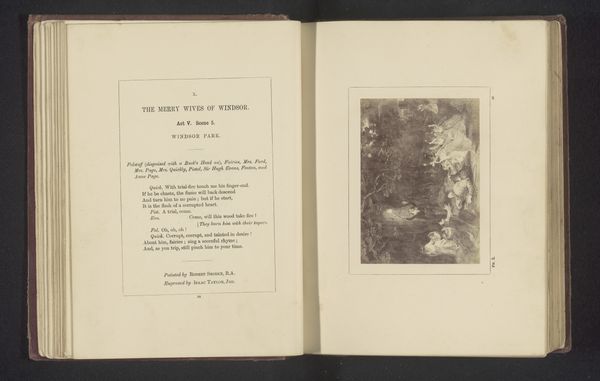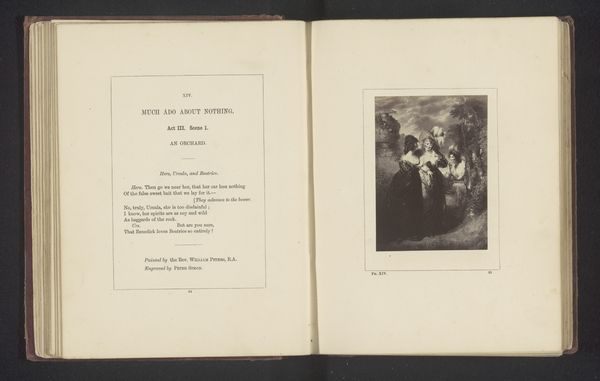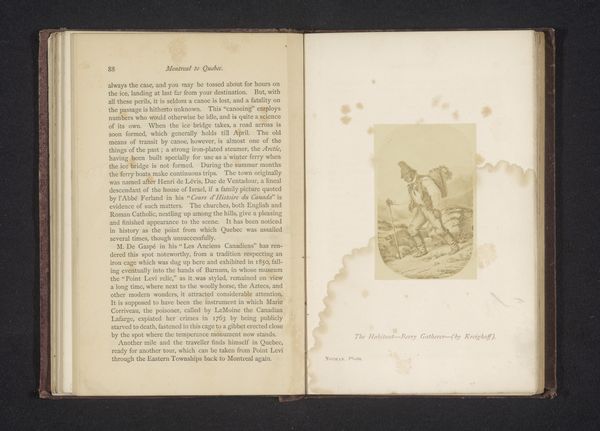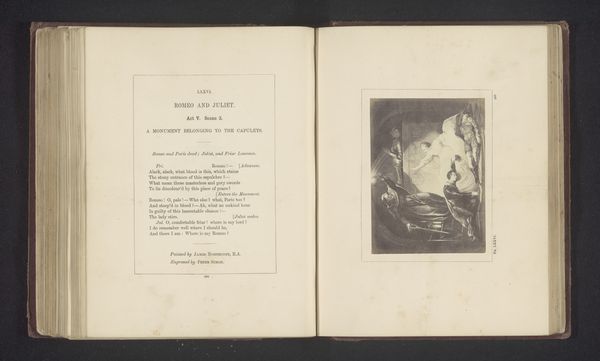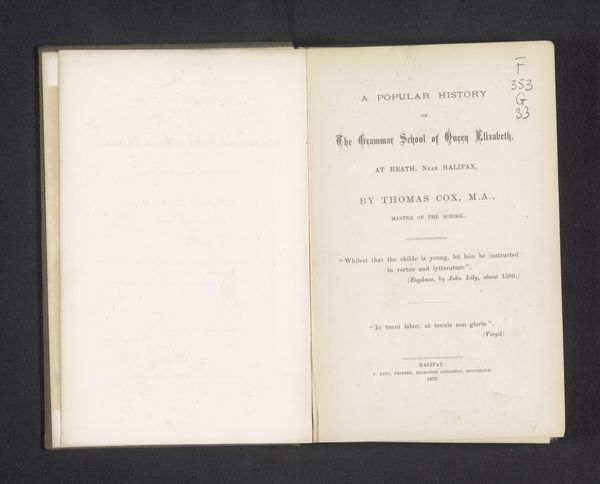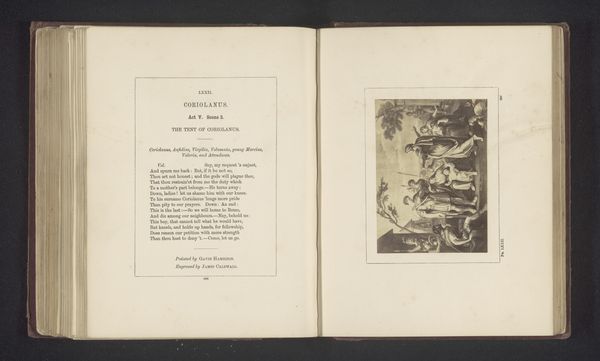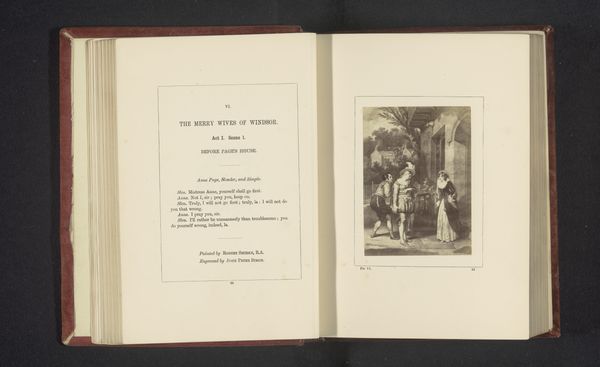
print, textile, paper
#
script typeface
#
aged paper
#
homemade paper
#
paperlike
# print
#
sketch book
#
textile
#
paper
#
personal sketchbook
#
fading type
#
thick font
#
handwritten font
#
historical font
Dimensions: height 215 mm, width 173 mm, thickness 35 mm
Copyright: Rijks Museum: Open Domain
Curator: This fascinating artifact is entitled "The Queen's Birthday-Book," published in 1887 by Mary F.P. Dunbar. It’s quite lovely, isn’t it? Editor: It looks… delicate. Ethereal, almost. The faded print and aged paper give it an air of treasured secrets, whispering stories from another era. Like holding a ghost. Curator: I find that impression fascinating, because, viewed materially, the book speaks to a Victorian obsession with collecting and personalizing. Here is handmade paper, tactile textiles in the binding, and printed script— all intended for noting personal connections and milestones. The means of production and its potential consumption highlight Victorian social life. Editor: Absolutely. But look closer. Notice the script typeface itself. There’s a softness to it, an almost fading quality that suggests not just age but vulnerability. And on the opposing page to the text is a misty image of what could be a noble subject. Curator: Dunbar's book was "compiled of ‘Shakespeare Birthday Book,’ and ‘Triplet of Life,'" as the title page suggests. She repurposes existing material toward new connections. Editor: I wonder about the labour that went into producing this object in 1887—who selected the textiles for the cover, prepared the paper, typeset each letter by hand… all those skilled hands are invisible within the object itself. Curator: Dunbar clearly sees books as more than utilitarian objects; to her they possess a potential for human connection— “May the faults of this Book rebound to myself, the profit to others” reads the frontispiece. How beautifully generous, to imagine any shortfalls being hers. Editor: Well, Dunbar and those anonymous hands of labour created more than just a repository for names and dates, didn't they? They crafted a portal through which we can touch, see, maybe even momentarily *inhabit*, a bygone time. I wonder if Mary had considered that. Curator: Maybe. In any event, spending even just this moment in thoughtful consideration allows us access into those echoes of being, connections over time, human truths. Editor: Indeed. Now to find someone whose birthday is recorded in its leaves.
Comments
No comments
Be the first to comment and join the conversation on the ultimate creative platform.
